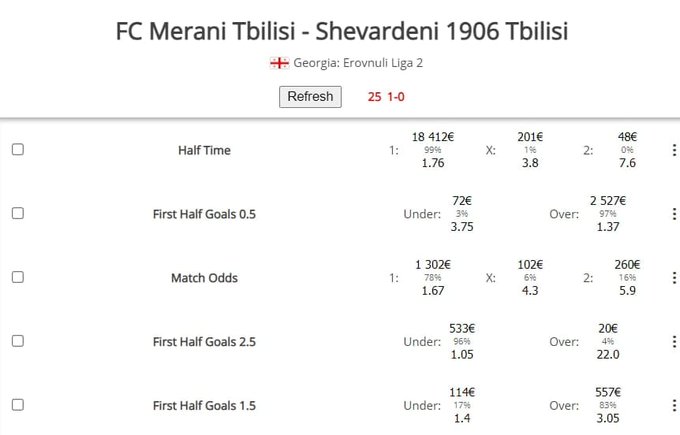
Adam El Mihdawy has been banned from tennis for three-and-a-half years and fined $5,000 (£4,346) after admitting match-fixing charges.
The American, 32, was sanctioned for fixing elements of matches, receiving money for fixing and failing to report corrupt approaches in line with the Tennis Anti-Corruption Program (TACP).
The International Tennis Integrity Agency (ITIA) relate the charges to an event in Mexico in 2016 where the player fixed two matches.
El Mihdawy, who had a career-high Association of Tennis Professionals (ATP) ranking of 281, received an additional suspended fine of $10,000 (£8,692) if there are any further breaches of the TACP.
The ban means he cannot compete professionally again until 28 February 2026.
Adam El Mihdawy: American tennis player banned after admitting match-fixing charges
Adam El Mihdawy has been banned from tennis for three-and-a-half years and fined $5,000 (£4,346) after admitting match-fixing charges.
The American, 32, was sanctioned for fixing elements of matches, receiving money for fixing and failing to report corrupt approaches in line with the Tennis Anti-Corruption Program (TACP).
The International Tennis Integrity Agency (ITIA) relate the charges to an event in Mexico in 2016 where the player fixed two matches.
El Mihdawy, who had a career-high Association of Tennis Professionals (ATP) ranking of 281, received an additional suspended fine of $10,000 (£8,692) if there are any further breaches of the TACP.
The ban means he cannot compete professionally again until 28 February 2026.
betblog.com/betting-news...g-millions-match-fixing/
betblog.com/betting-news...la-match-fixing-scandal/










.jpg?v=1.014689161)





.png?v=1.014689161)
















The Global Lottery Monitoring System (GLMS) has reported a 41% year-on-year increase in the number of suspicious sports betting alerts generated to its members for 2020.
The lottery industry sports betting integrity body sent out 1,113 alerts to its members, including operators worldwide, despite the coronavirus pandemic causing havoc to the sporting schedule earlier last year.
Out of the alerts generated, 936 were created before the start of a match, with 150 triggered at the conclusion of matches.
Football was the biggest culprit accounting for 832 of all alerts, or more than 75%. Basketball was second with 134, ice hockey third with 55 and tennis making up 50 of the total alerts.
In terms of region, Europe was the most offending continent with 727 such alerts reported. Asia had 191, South America 90, North America 64, Africa 23, and Oceania with just seven.
The most common reason for triggering the alerts was team-related news attributing for 402 alerts, with significant odds change next with 192, and wrong opening price accounting for 140 alerts.
In total, 715 of the alerts were classified as green for more minor alerts, with 217 yellow and 86 ranked as red, which includes suspicious odds changes or rumours of match-fixing from a named source.
Additionally, GLMS alerted or reported 126 matches to its partners, which includes sporting governing bodies, sending a total of 162 alerts based on the offending matches, 110 of which concerned football.
The GLMS said that the pandemic affected various competitions, referring to the fact in team sports, “teams had to continuously revisit their strategies and team line ups, counting on their reserve or youth players to fill the gaps for senior players who tested positive or were quarantined.”